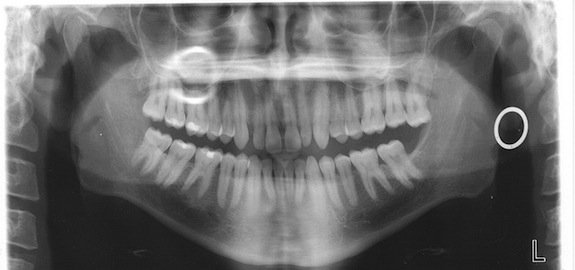Prehistoric Humans Had Better Teeth Than We Do
We have straighter teeth, whiter teeth, more beautiful, shimmery teeth than our parents. But it turns out that we actually have less healthy teeth than our ancestors

Image: Jason
Chances are you brush your teeth every morning. You probably floss, and you might even use mouth wash. Dental hygiene is flourishing, with a multimillion dollar economy behind it. We have straighter teeth, whiter teeth, more beautiful, shimmery teeth. But it turns out that we actually have less healthy teeth than our ancestors. In fact, archaeologists say that prehistoric humans had much better teeth than we do today.
It all started with farming, says Alan Cooper, the director of the Australian Centre for Ancient DNA. His study suggests that the shift from meat, nuts and vegetables to grains and sugars has wreaked havoc in our mouths by changing the kinds of bacteria we find there. NPR writes:
The researchers found that as prehistoric humans transitioned from hunting and gathering to farming, certain types of disease-causing bacteria that were particularly efficient at using carbohydrates started to win out over other types of “friendly” bacteria in human mouths. The addition of processed flour and sugar during the Industrial Revolution only made matters worse.
So teeth-brushing, flossing and washing is simply covering up a more fundamental problem, says NPR, that we don’t have the right bacteria in our mouths anymore to keep our teeth healthy. In fact, the bacterial balance in our mouths right now has shifted towards the kinds of bacteria we don’t want‚the harmful kinds. Our body is constantly fighting them off, no matter how hard or regularly we brush.
To restore the balance, Cooper told NPR, cut the carbs and eat more like a caveman.
More from Smithsonian.com:
Shark Teeth Have Built-in Toothpaste
The Mysterious Teeth of Ostafrikasaurus
/https://tf-cmsv2-smithsonianmag-media.s3.amazonaws.com/accounts/headshot/Rose-Eveleth-240.jpg)
/https://tf-cmsv2-smithsonianmag-media.s3.amazonaws.com/accounts/headshot/Rose-Eveleth-240.jpg)